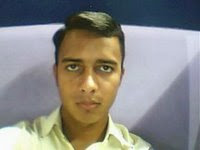 News reports say that Sunita Williams planned to send her long tresses back to Earth, to make a hair-piece for some handicapped person. Six months in orbit will give her enough time to grow them afresh. She would have had no problem getting them lopped off. Long strands of hair can be held easily as they are being cut. But where she to go in for a short trim, that would not be so easy. Because, in the zero gravity situation, bits of hair don't fall to the ground on their own. So whenever they are being cut, someone has to hold a vacuum appliance close to the subject's head to suck in all the trimmings.
News reports say that Sunita Williams planned to send her long tresses back to Earth, to make a hair-piece for some handicapped person. Six months in orbit will give her enough time to grow them afresh. She would have had no problem getting them lopped off. Long strands of hair can be held easily as they are being cut. But where she to go in for a short trim, that would not be so easy. Because, in the zero gravity situation, bits of hair don't fall to the ground on their own. So whenever they are being cut, someone has to hold a vacuum appliance close to the subject's head to suck in all the trimmings. It is same with bathwater when you take a shower. On its water would remain suspended in the air. So, every drop has to be tracked and sucked in. But absence of any gravitational pull has some advantages too. For example, one can wear one's trousers both legs at the same time. And it is possible to sleep while standing upright, or even turned upside down.
These are some of the quirks of life in space highlighted at Henry Crown Space Centre in the Museum of Science and Industry in Chicago. Within its precincts, there is a To be an Astronaut show. As one queues up for it, there is a TV console on one side where one can press buttons and get answers to some FAQs about space travel. The subjects covered include sleeping, exercising, eating, extra-vehicular activity and hygiene on board the spacecraft.
Almost every visitor seemed to pressing the button for the last of them to seek an answer to a very fundamental question: How do they download human wastes in a zero gravity situation? How does it fall and get flushed out without the Earth's pull? Once again suction by powerful air action somewhere inside the WC bowl, similar to that of an exhaust fan, does the needful. But there still remains the problem of its disposal. The easiest course would be to jettison it into space and , probably, into a geosynchronous orbit of the Earth. But the demands of science have priority. So, it is all collected and carefully brought down to the Earth for medical research.





No comments:
Post a Comment